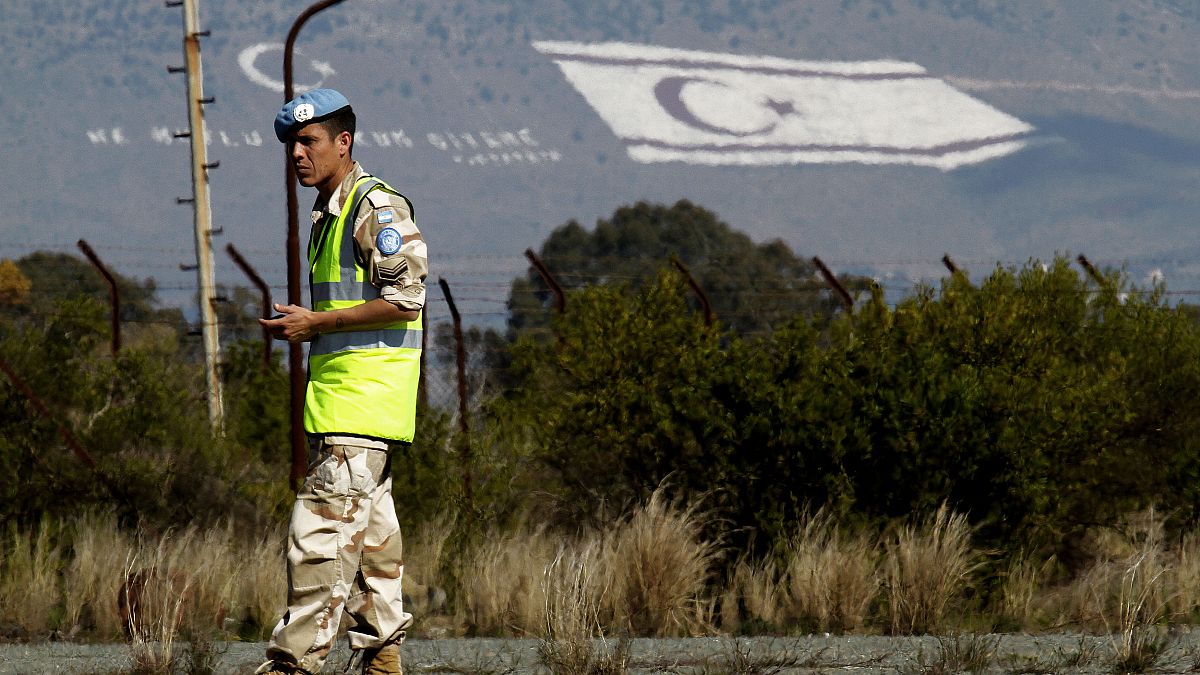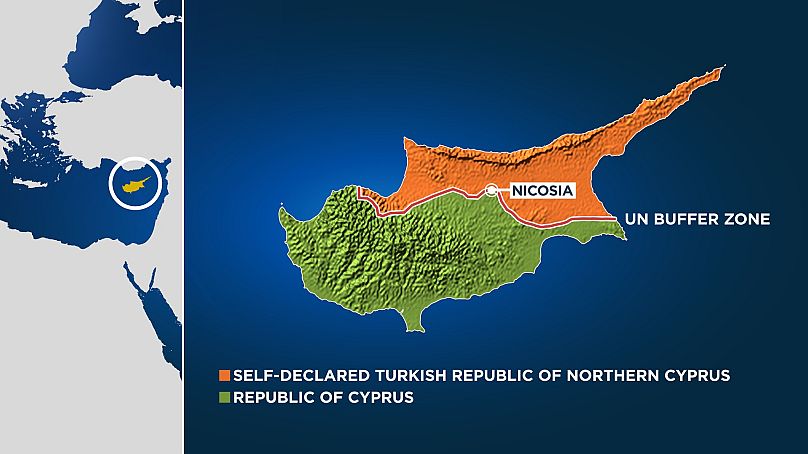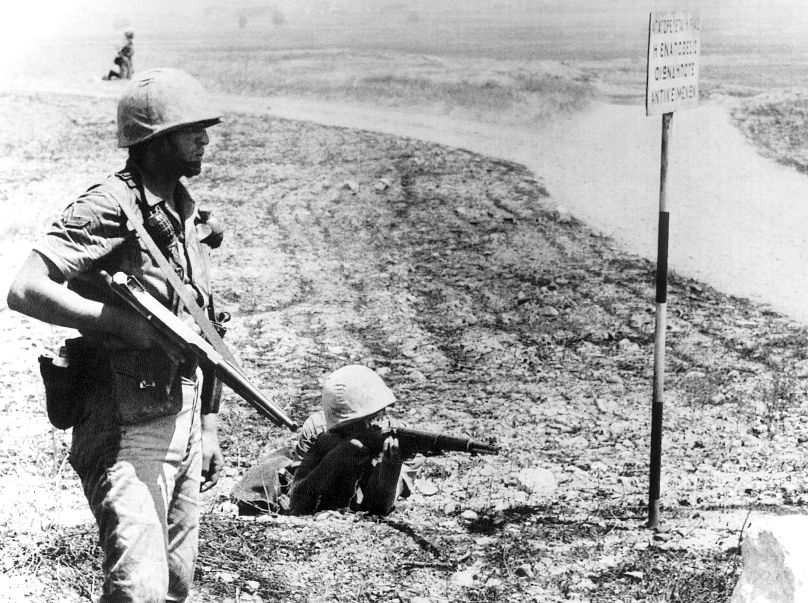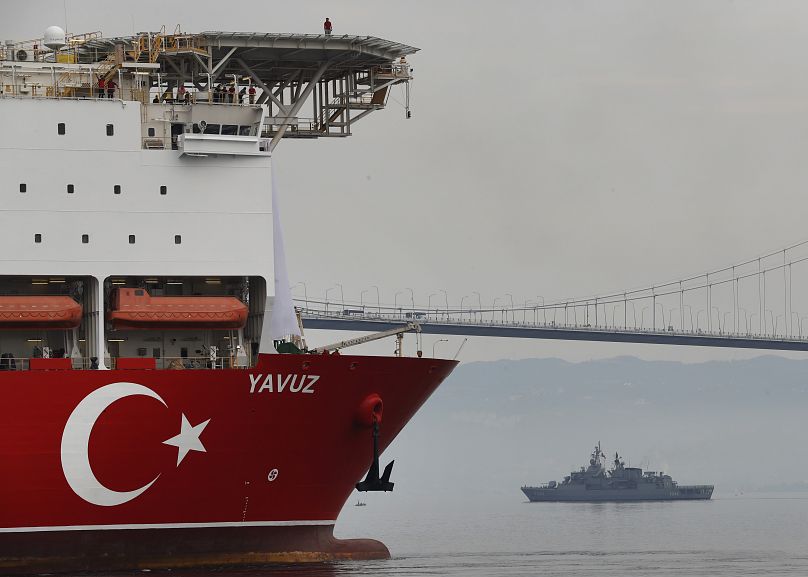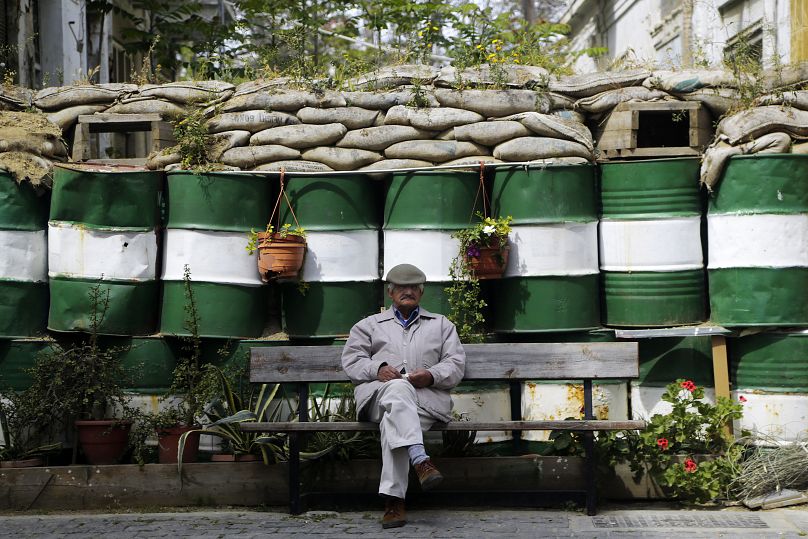The Cyprus conflict has been known as "the graveyard of diplomats". Will the new round of UN-mediated talks next week be any different?
The United Nations will host a meeting from 27 to 29 April on the conflict that has split the Mediterranean island nation of Cyprus for almost five decades.
"The purpose of the meeting will be to determine whether common ground exists for the parties to negotiate a lasting solution to the Cyprus problem within a foreseeable horizon," said Stephane Dujarric, spokesman for UN Secretary-General Antonio Guterres.
The format of the talks will be an "informal 5 +1 meeting", including Cyprus' two rival communities, the three guarantor countries, namely Greece, Turkey and Britain -- the island's former colonial ruler -- plus the UN.
The meeting, which will take place in Geneva, Switzerland, will be the first attempt to resume talks since the last push for a peace deal collapsed in 2017.
The Cyprus conflict is known as the "graveyard of diplomats". Numerous rounds of UN-mediated talks have ended in failure since 1974 when Turkey invaded following a coup aimed at unifying the island with Greece.
A Turkish Cypriot breakaway "state" declared in the north is recognised only by Turkey, while the Republic of Cyprus has an internationally recognised government led by Greek Cypriots. Cyprus is also an EU member since 2004.
What are the chances for this latest UN push for peace to succeed?
Euronews takes a look at one of Europe's longest, most intractable conflicts and the prospects to solve it.
Why a peace deal is unlikely
The experts interviewed by Euronews were not optimistic that the UN meeting would lead to a major breakthrough in the peace talks.
"The situation does not allow for much optimism as to where a common denominator can be found in negotiations forward," said Anna Koukkides-Procopiou, a Senior Fellow at the Center for European and International Affairs at the University of Nicosia.
Two-state vs federal solution
The major issue, she told Euronews, is a shift in the stated position of Turkey and the Turkish Cypriot leadership from reunifying the country as a federation to a two-state deal.
The majority of Greek Cypriots insist that they would never accept a two-state solution that would formalise the island’s partition.
They argue it would fall outside the federal framework the two sides agreed on 44 years ago and enshrined in multiple UN Security Council resolutions since then.
On the other hand, Ugur Ozgoker, Vice-President of the World Diplomats Union and President of the Turkish-Northern Cyprus Chamber of Commerce, told Euronews that his fellow Turkish Cypriots would become a "minority" in the federal state envisioned by Greek Cypriots.
Greek Cypriots "say that they prefer a federal Cyprus Republic, but they don't want it. They only declare it," Ozgoker said, noting that they rejected a constitution with a federal arrangement in a 2004 referendum, while Turkish Cypriots endorsed it at the time.
"A peaceful solution for both Turkish and Greek Cypriots would be two independent and sovereign states within a confederation. I underline that within a Confederation, two sovereign and independent states can cooperate together, can keep a full EU membership and also become a NATO member," Ozgoker told Euronews.
Disagreements over guarantor system
Koukkides-Procopiou furthermore noted "the objection of the Greek Cypriots to allow a very anachronistic system of guarantors and the presence of security forces in Cyprus".
"Turkey is still a guarantor in the Republic of Cyprus and so are Britain and Greece. This is based on the 1960 treaties, the postcolonial treaties, which established the Republic of Cyprus," the expert explained.
"Greece and Britain do not want to be guarantors anymore. It's a non-question for them that the system can and should be scrapped."
"But Turkey doesn't want to forfeit the right to be a guarantor in a new state which will emerge in Cyprus. That's a major sticking point because no Greek Cypriot will ever feel safe if Turkey has any kind of legitimisation for intervening militarily in Cyprus," she noted, especially with Ankara's human rights record going "downhill".
Ozgoker told Euronews that a majority of Turkish Cypriots were in favour of Ankara remaining a guarantor "because of what happened in the past," referring to the intercommunal violence of the 1960s and the Greek coup of 1974.
He also said that a minority of the Turkish Cypriot community saw EU membership, rather than Ankara's backing, as a guarantee for their survival.
Hardline leadership and Turkish settlers
"There was a massive and decisive intervention by Turkey in favour of a hardliner (Ersin Tatar) in the Cyprus question in the recent [Turkish Cypriot] presidential election," said Hubert Faustmann, a professor of history and political science at the University of Nicosia and Director of the office of the Friedrich-Ebert-Foundation in Cyprus.
The election of a hardliner "doesn't give much hope" that peace efforts can succeed, according to the expert.
One factor in this electoral shift has been the arrival of Turkish settlers in northern Cyprus, according to Faustmann and Koukkides-Procopiou.
"A lot of settlers are coming in from Anatolia, which is very conservative, very religious and affiliated with President Erdogan's regime. So the whole situation, the whole mix of the population is changing," said Koukkides-Procopiou.
"Bringing settlers in is a war crime under the Geneva Convention," she added.
What can the meeting achieve?
"I don't think any party participating at the conference that's involved in the conflict wants to solve it now," said Faustmann.
In this context, the scholar told Euronews, "the best outcome we can hope for are confidence-building measures" and "the sides talking to each other".
"A joint statement at the end of the meeting" is "actually the best we can hope for," echoed Koukkides-Procopiou. Such a statement would be expected to state the parties' intention of taking the negotiations forward, she added.
Faustmann said the meeting could also help "managing existing conflicts," including those surrounding oil and gas and the opening of the ghost town of Varosha by the Turkish side last year.
Turkey’s research vessels — escorted by warships — continue to search for hydrocarbons in waters where Cyprus claims exclusive economic rights. Turkey insists it is acting within its legal right to protect its interests and those of the Turkish Cypriots community.
The Cypriot government says Ankara is violating international law and harming the resumption of peace talks.
The decision last year by Turkey and the Turkish Cypriot government to open the ghost beach town of Varosha for the first time in 46 years also sparked anger from Nicosia.
Cypriot President Nicos Anastasiades condemned the opening as a "flagrant violation of international law" and UN Security Council resolutions that consider attempts to settle any part of Varosha — Maras in Turkish — by anyone other than its inhabitants as "inadmissible." The resolutions also call for the area to be transferred to UN administration.
Ultimately, said Faustmann, the upcoming UN talks will be less about solving the conflict than about the different parties "not losing the blame-game."
What's the role of the EU in the process?
The role of the EU in the peace process is in itself "an issue of contention," said Koukkides-Procopiou.
For the Greek Cypriot side, it is essential that the EU gets actively involved in the peace process.
"The Cyprus Problem became a European Problem" the moment the Mediterranean country joined the bloc in 2004, wrote Cypriot Foreign Minister Nikos Christodoulides in a recent op-ed advocating for Brussels to take its seat at the negotiation table.
"The EU needs to be actively engaged in the talks, firstly, because the acquis needs to be maintained in a future solution under a European state, European values need to be upheld and of course, on a practical level, any kind of solution that we come up with needs to be workable and sustainable," said Koukkides-Procopiou.
"Turkey and the Turkish Cypriots don’t want the EU there," Faustmann noted because they claim the bloc is not "impartial" due to the membership of Greece and the Republic of Cyprus.
"That sounds really ridiculous because, at the same time, Turkey is supposedly aspiring to become a European Union member," said Koukkides-Procopiou.
Contacted by Euronews, the European External Action Service (EEAS) welcomed the new round of UN talks while expressing its willingness to play an active role in the process.
The statement sent by EEAS suggested that the bloc had not yet received an invitation from the UN at the time of writing.
But Faustmann said it was hard to imagine the talks could be held without the EU.
"The EU was there in the talks after 2007 and the EU will be back," the expert told Euronews, even if it might be more in an observer role this time.
What's the impact of the conflict on the people of Cyprus?
The conflict in Cyprus is a "classical frozen conflict" with no casualties since 1996, Faustmann noted.
"The partition of the island has become an everyday experience that people got used to," he said.
However, the pandemic "made things much worse" and reduced interactions between the two communities which had become "meaningful" in recent years, the expert noted.
"The COVID crisis allowed both sides to close the crossing points, which opened 2003," he said.
Faustmann also noted that the Republic of Cyprus, a popular tourist destination, was "prosperous", while the breakaway north was "economically much weaker."
Ozgoker told Euronews that the Turkish-Cypriot side was "badly affected" by the international embargo and economic sanctions that have been in place since its declaration of independence.
According to Koukkides-Procopiou the conflict is still "impacting everyone's lives." She told Euronews that 200,000 people living in the south still had their homes in the northern part occupied by Turkey.
"We're talking about a huge percentage of the population because the population of Cyprus is hardly one million," she noted.
"These people have not forgotten about their homes. They want to go back to their villages."
"My grandmother, she was a refugee and she died a very, very sad woman because she wanted to go back to her house and she wanted to be buried in the cemetery of her village. And this did not happen."
Every weekday at 1900 CEST, Uncovering Europe brings you a European story that goes beyond the headlines. Download the Euronews app to get an alert for this and other breaking news. It's available on Apple and Android devices.


